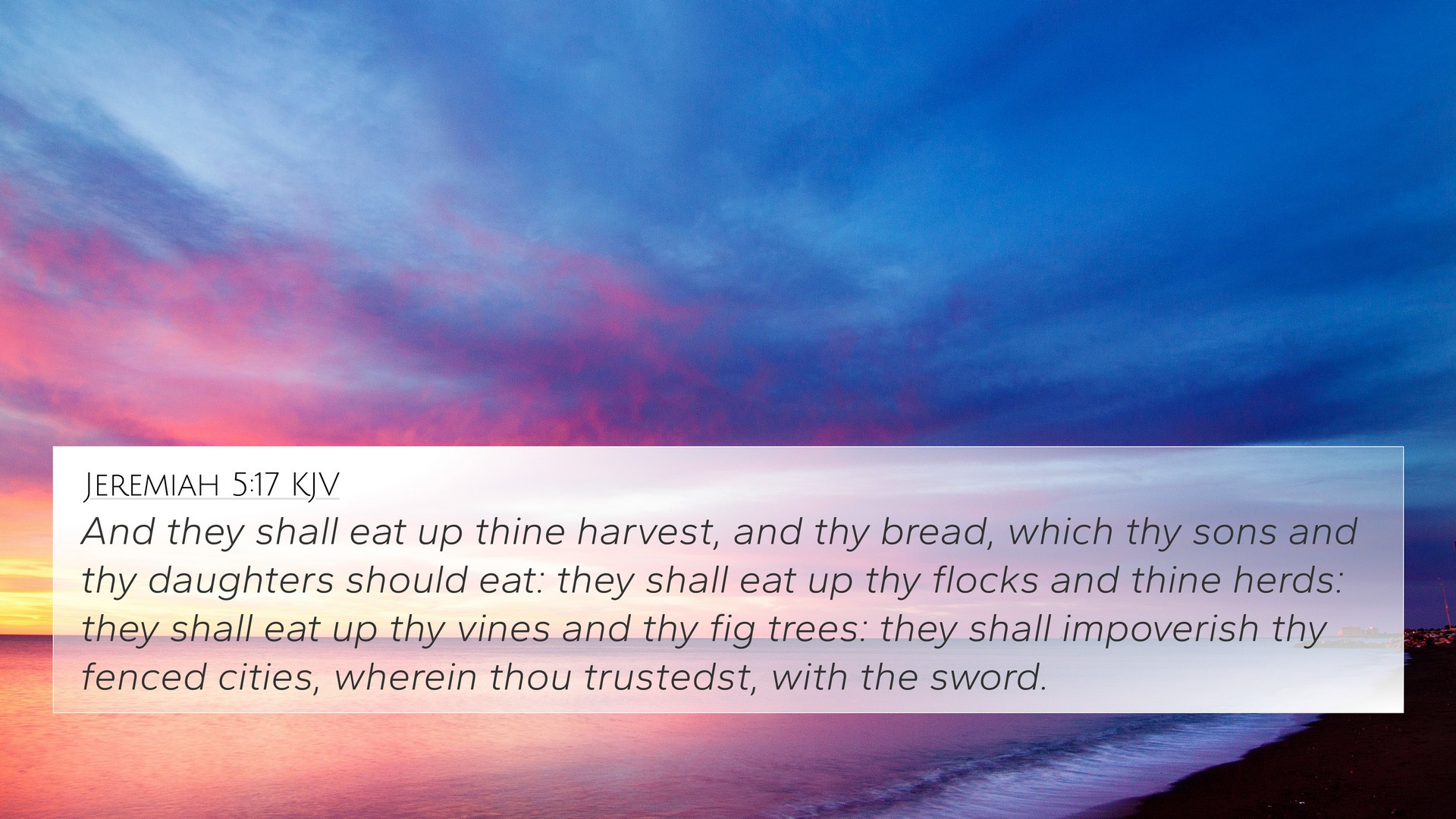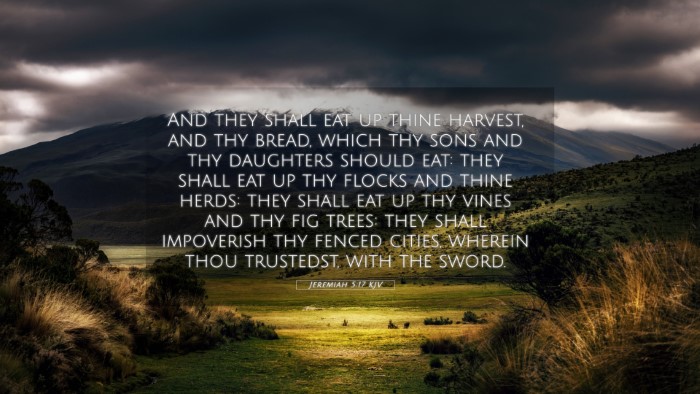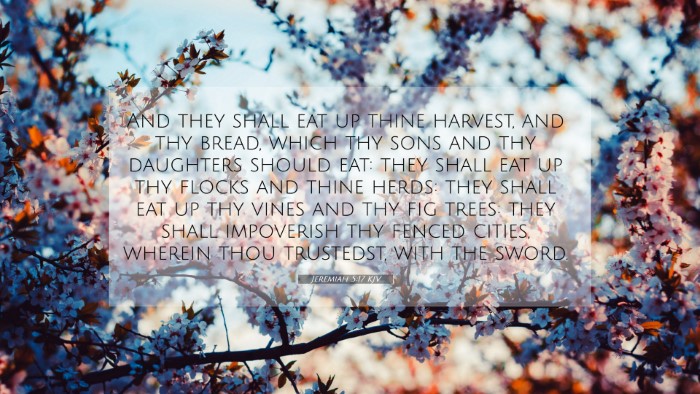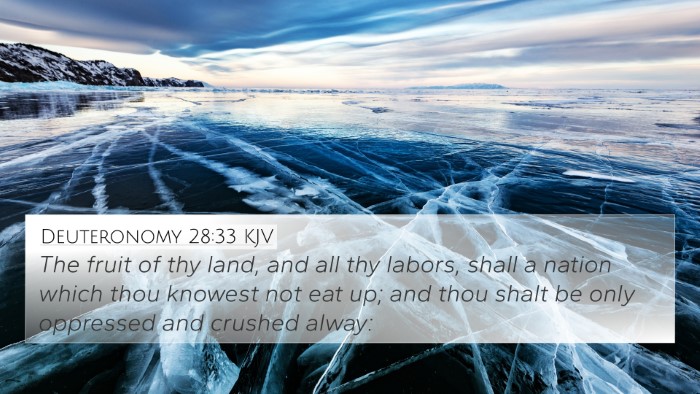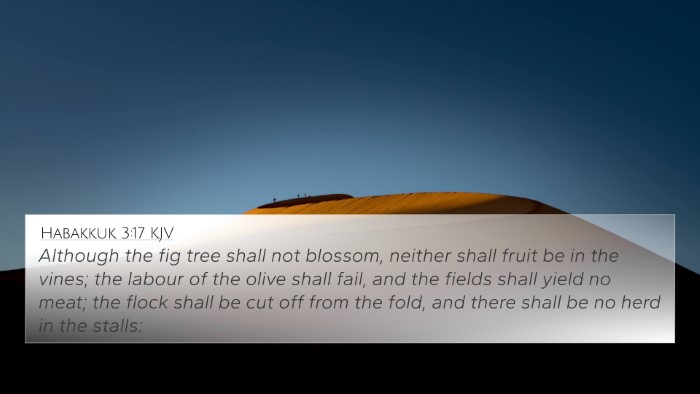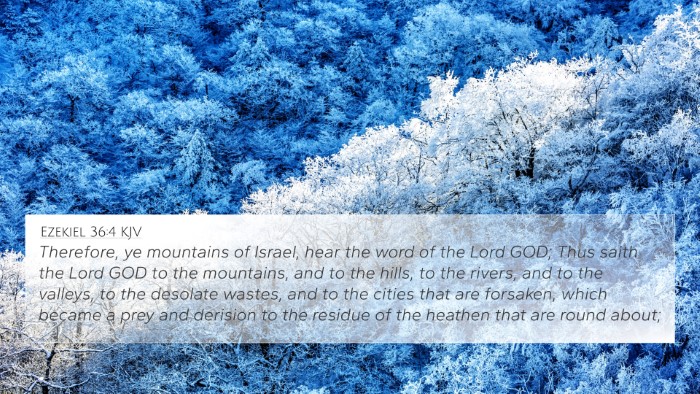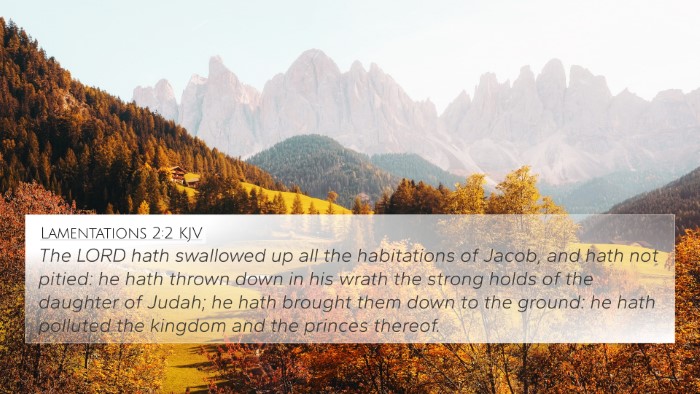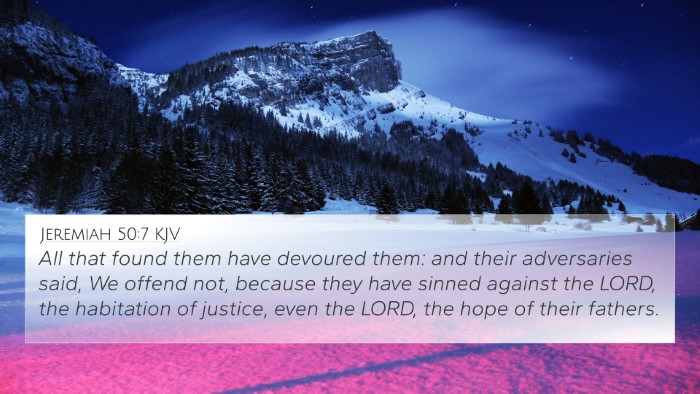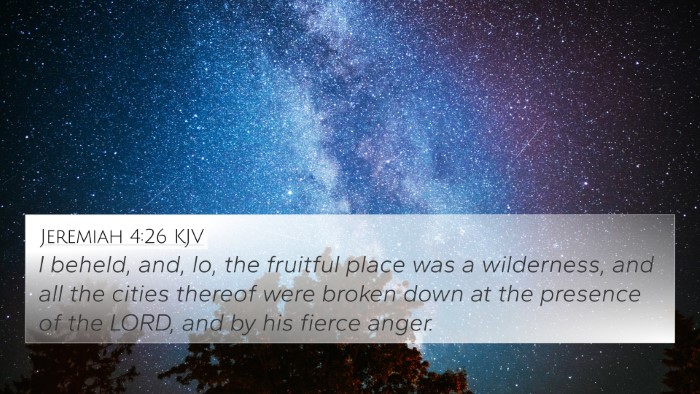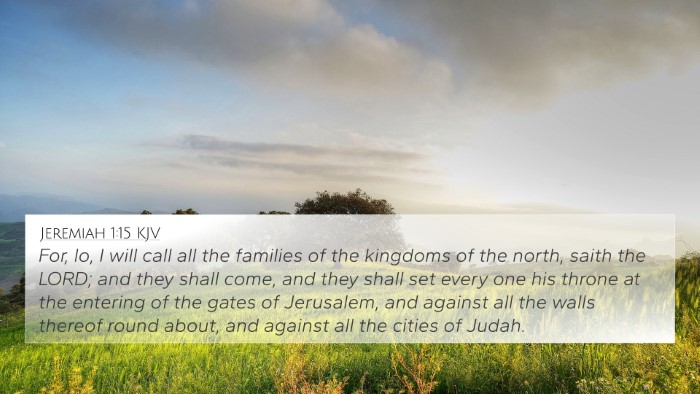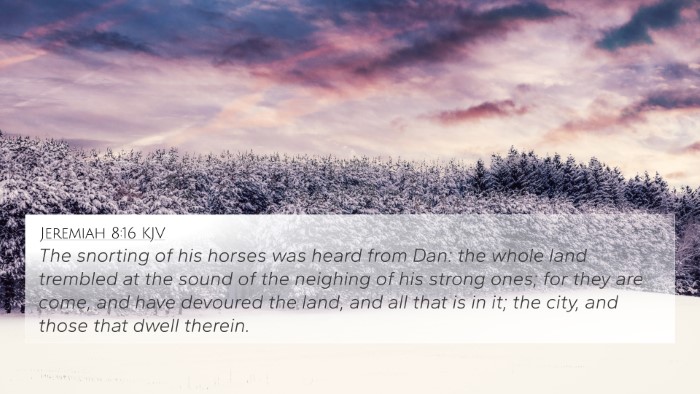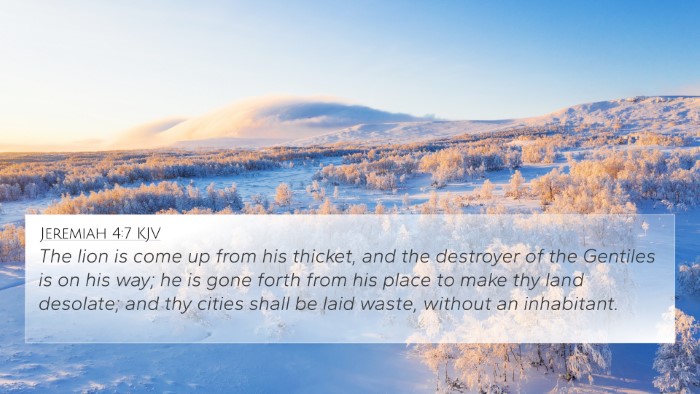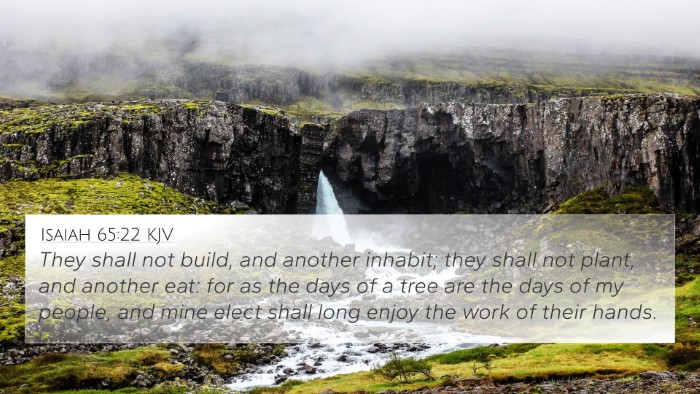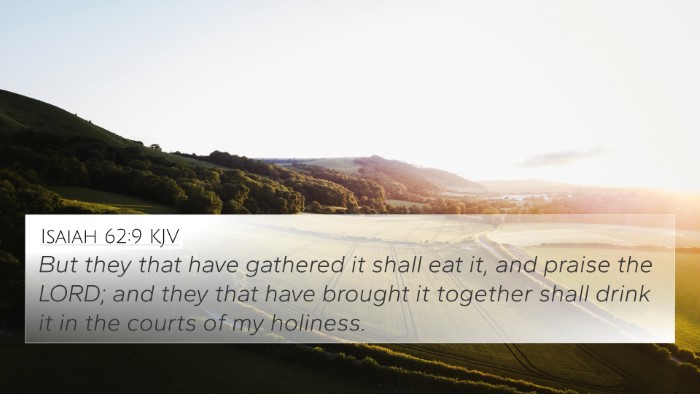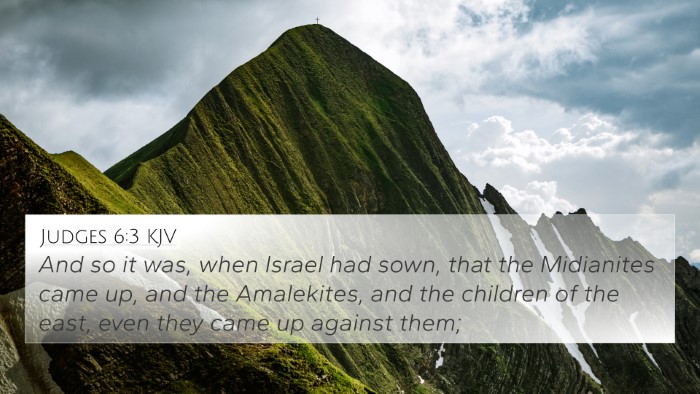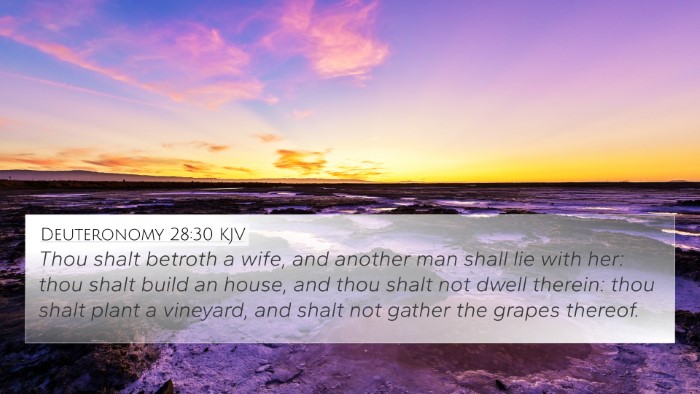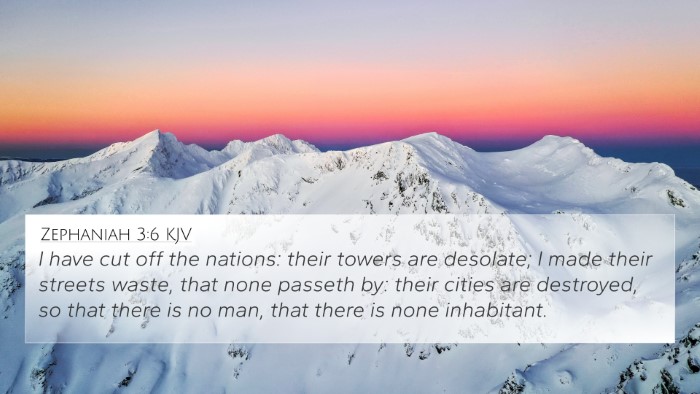Understanding Jeremiah 5:17
Jeremiah 5:17 states:
"And they shall devour your harvest, and your bread, which your sons and your daughters should eat: they shall eat up your flocks and your herds: they shall eat up your vines and your fig trees: they shall impoverish your fenced cities, wherein ye trusted, with the sword."
Verse Meaning and Exegesis
This verse reflects a profound warning issued by the prophet Jeremiah regarding the devastating consequences of sin and disobedience among the people of Judah. The impending threats symbolically represent the complete devastation that will come upon them due to their unfaithfulness to God.
Commentary Insights
Matthew Henry's Commentary:
Henry emphasizes the seriousness of the judgment looming over Judah. The imminent attack by adversaries symbolizes God’s judgment manifesting through ruined agricultural produce and losses of livestock. This indicates that the failures of their leaders and people will culminate in tangible suffering.
Albert Barnes' Notes:
Barnes notes the graphic detail outlined in this verse, indicating the widespread nature of suffering. He explains that the loss would affect every aspect of life, including the essential provisions for sustaining families. The breakdown of societal structures becomes apparent as the people trust in the cities that would ultimately fail them.
Adam Clarke's Commentary:
Clarke discusses the imagery of devastation referring to both physical destruction and a spiritual void resulting from forsaking God’s covenant. He stresses that the sins of the people evoke a deserved punishment, driving home the urgency for repentance and return to faithfulness.
Key Themes in Jeremiah 5:17
This verse encapsulates several pivotal themes:
- Punishment: A clear consequence for sin and disobedience.
- Destruction: Physical loss of livelihood as a divine response.
- Community Impact: Effects on families and societal structure.
- Trust in God: The importance of reliance on divine providence rather than earthly deliverance.
Cross-References
Jeremiah 5:17 has profound connections with several other scripture verses that help expand its meaning:
- Deuteronomy 28:38-40: A description of the blessings and curses contingent on obedience to God.
- Isaiah 9:18-19: Referring to the destruction and judgment faced by society due to corruption.
- Amos 4:6-9: A warning from God about various forms of punishment for failing to return to Him.
- Lamentations 2:20: An expression of the deep sorrow and suffering resulting from the siege and desolation of Jerusalem.
- Micah 6:15: Highlighting the futility of harvesting without being blessed by God.
- Matthew 24:7: Jesus’ warning about devastating events in the end times that relate to both natural and civil discord.
- Revelation 6:5-6: Indicating global calamities and scarcity in the last days resembling the agricultural loss in Jeremiah.
Connections Between Bible Verses
Understanding Jeremiah 5:17 within the broader scriptural context reveals interconnected themes and messages:
- Thematic Bible Verse Connections: The continuity of God's judgement across both the Old and New Testaments emphasizes accountability for sin.
- Bible Verses That Relate to Each Other: Linking the warnings of prophets like Jeremiah with the teachings of Jesus creates a cohesive understanding of God’s justice.
- Inter-Biblical Dialogue: Comparing the messages of different prophets enhances our grasp of divine judgment and mercy.
Tools for Bible Cross-Referencing
To gain deeper insight into the connection of Jeremiah 5:17 with other scriptures, various tools can assist:
- Bible Concordance: Useful for finding where terms and themes are repeated across different books.
- Bible Cross-Reference Guide: A helpful resource to see direct relationships between verses.
- Cross-Reference Bible Study: Facilitates thematic studies on how different scriptures illuminate one another.
Conclusion
Jeremiah 5:17 serves as a stark warning about the consequences of sin, interconnected with many lessons throughout the Bible concerning divine justice and mercy. By employing cross-referencing tools and engaging with thematic studies, individuals can better comprehend how this verse correlates with the broader narrative of scripture, reflecting the timeless nature of God's call for repentance and restoration.
